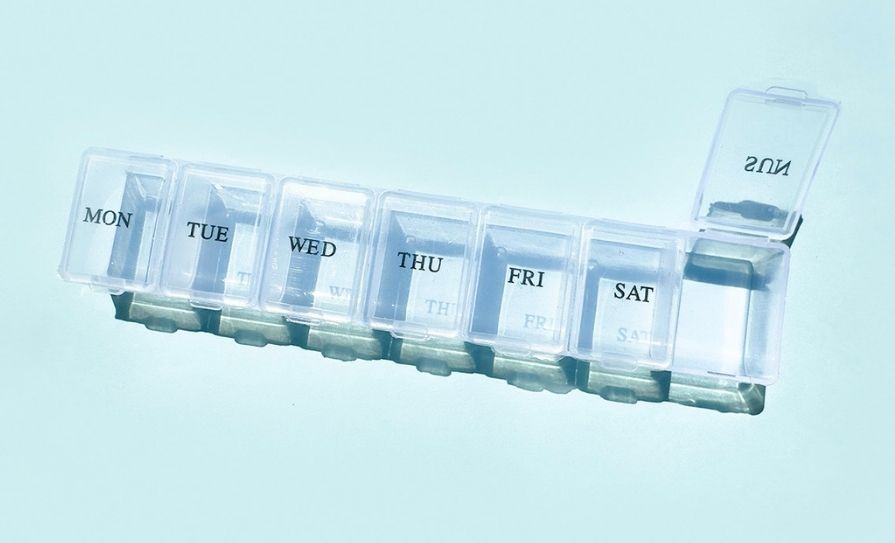Far from being a fad, mindfulness is more relevant than ever, writes Séamus Ruane, community pharmacist and certified positive psychology practitioner
“If one more person tells me to just breathe, I’m going to take a swing at them,” said the highly stressed and agitated delivery guy last week in the pharmacy, as he crossed another delivery off his list and headed back out
into the hectic Galway traffic. I immediately understood how he felt. It really does seem that no matter what the problem or issue is at the moment, the answer seems to be mindfulness, meditation, and focusing on your breath.
As pharmacists, we witness the introduction of many fads and crazes throughout our careers in the healthcare sector, in my case starting with the apparent miracle that was Royal Jelly, and encompassing various wonder cures every couple of years since. Mindfulness seems to be the latest in the list when it comes to interventions positively influencing our health and wellbeing. There are countless articles and apps, podcasts and gurus instructing us on how to be mindful, and why we should introduce meditation into our daily lives. Sometimes we
can become a bit cynical, and understandably so, but in this case I think we discount and shrug mindfulness off at our peril.
There is growing evidence that our 24/7, chaotic, stress-filled lives are doing us immense harm. There can be no doubt that stress is a recognised precursor to many illnesses and diseases. The nine-to-five working day is truly a thing of the past, with a blurring of the line between work and leisure. Technology, the constant flow of information, and structural changes in society have resulted in less support for our basic human needs of sleep, rest, a sense of belonging, and physical activity. So even though mindfulness is an ancient practice, its benefits may be more relevant today than ever.
HISTORY
Far from being a fad, mindfulness has a long and rich history dating back thousands of years. Its current popularity sees it being used in all sorts of environments, from primary schools to Harvard University, and from the US military to the NHS in the UK. Google, eBay, Apple, Sony, Virgin, IKEA — the list goes on — all actively promote and run mindfulness programmes for their employees.
As is often the case, the science is catching up to this ancient wisdom, and mindfulness has become a popular topic in the field of scientific research. Reported benefits span improved mood, decreased anxiety and stress, diminished pain, blood pressure reduction and improved emotional intelligence. Among the many misconceptions circulating are that mindfulness entails being ‘zoned-out’, becoming annoyingly positive, and removing your
‘sharpness’. The reality reveals that nothing could be further from the truth, and far from removing one’s sharpness, mindfulness in fact does the exact opposite.
At the heart of mindfulness is an increase in self-awareness, giving us an ability to choose our response to a given event, rather than reacting with an emotional outburst. Surely we all have customers and patients where such
a skill at the counter would be invaluable in optimising our dealings with them!
ANXIETY
Dan Harris is an ABC news anchor and presents weekend editions of Good Morning
America. He experienced a nationally televised panic attack in front of millions of people. A life-long skeptic of self-help solutions, he stumbled upon and embraced mindfulness as an effective way to manage his anxiety and the ‘voice in his head’. He has a knack for explaining potentially complex subjects in very easy-to-understand terms. He describes mindfulness as “noticing what’s happening in your head, at any given moment, without getting carried away by it”.
So how does this apply to you as a practising pharmacist? Why should you care? Picture the scene: A busy, chaotic Friday evening in the pharmacy, Healthmail pinging, phones ringing. Almost afraid to look up, you hear a time-consuming patient ask, ‘can I have a word with the pharmacist?’ In the back of your mind you are thinking of the blister packs to be checked, the claims to be sent, and are all too aware that your trusted technician is on holidays. In such a situation, it would be all too easy to get caught up and swept away by the busyness and apparent chaos.
EYE OF A STORM
Mindfulness allows you to remain calm, and exist peacefully in the eye of such a storm. Mindfulness opens the gap between stimulus (busyness) and response (stress), giving us a level of awareness that allows us time to choose
how we respond. Now, let’s be clear here — this doesn’t mean we won’t ever get stressed again, but it does allow us to recognise our stressful response sooner and gives us the ability to change course when required. This indeed is the whole point, not to aim to spend hours a day on a cushion in formal meditation practice, but to have the agility to choose our response to a given situation, rather than acting reflexively.
Some questions for you to consider:
- Can you pause a couple of times each day and just focus on your breathing for a few moments?
- Could you set yourself reminders to periodically check in with yourself throughout the day, and assess how you are feeling?
- How could you ensure that you and your colleagues take adequate rest breaks every day?
If you would like to work with Séamus to boost your level of wellbeing or that of your team, he can be contacted at Tel: 087-2274108 or email info@ithrive.ie.







